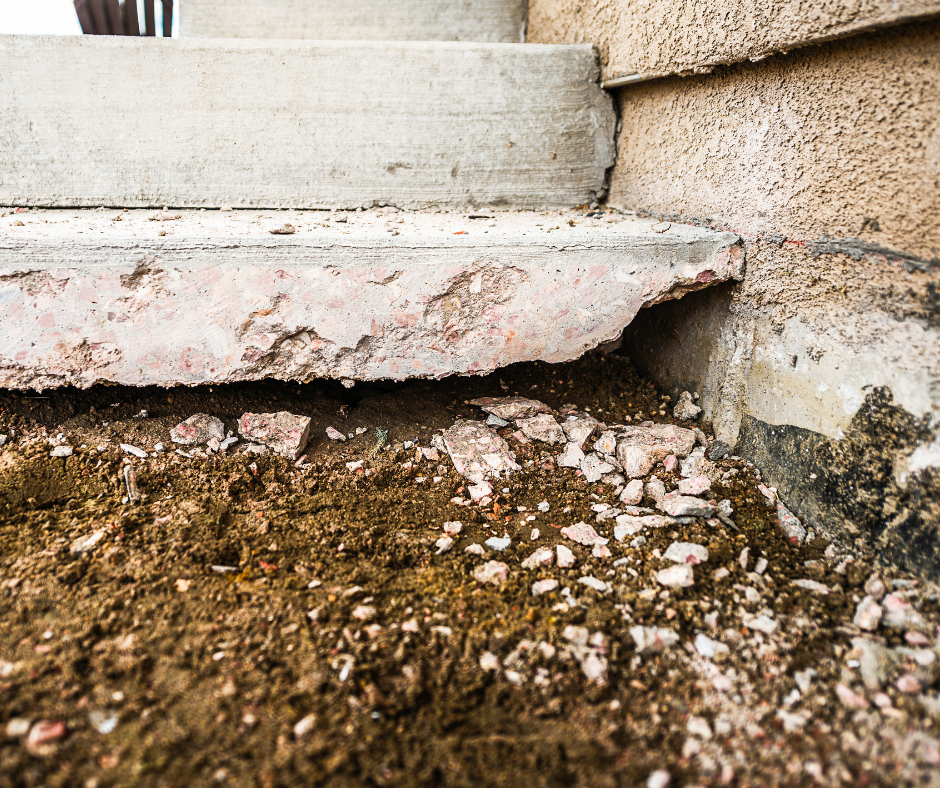Hydrostatic pressure is a serious issue that can threaten the integrity and safety of an entire home. Simply put, hydrostatic pressure occurs when excess water gets trapped in the soil around or underneath a foundation. While a certain amount of water in the ground under a home is perfectly normal, there are times when higher than normal amounts of water can accumulate in the soil, causing it to become saturated.
How Could Hydrostatic Pressure Impact Your Houston Home?
Excessive accumulation of water in the soil underneath your foundation can exert a lot of pressure on underground components, such as the concrete slab and foundation piers. Although your foundation was designed to withstand all kinds oftensile, compressive, and bending stresses coming from the structure above it, it may not resist the upward forces caused by standing water pushing against its underside. In short, excessively high hydrostatic pressure could weaken your foundation over time, potentially leading to major structural damage.
But the pressure resulting from the water accumulation around your foundation is just half the problem. The other half is the excess water itself, which may create additional issues throughout your home, including dry rot, mold growth, and pest infestations. Too much water could also cause foundation problems to become more severe over time. For instance, bowing walls and crumbling areas of your foundation are two problems that may occur when water damage is left unaddressed. These issues can make foundation repair much more complex and expensive.
How to Address Hydrostatic Pressure-Related Problems
The best way to address hydrostatic pressure along with the problems it may create is to be proactive. To find out how you can do that, let’s first take a look at the factors that could cause and aggravate hydrostatic pressure.
Hydrostatic pressure tends to occur on properties that lack a proper drainage system or around homes located in areas withhigh water tables. Sometimes, underground leaks could also create hydrostatic pressure problems.
As well, the clay soil we have in Houston can substantially increase the amount of damage that hydrostatic pressure could cause. Because clay soil absorbs more water than other types of soil, it can expand considerably. This expansion could lead to heaving, which may put even more pressure on your foundation. Eventually, the excess pressure could lead to more severe damage in the form of deep, large cracks in the foundation, differential settlement, andbowing walls.
The good news is that you can prevent hydrostatic pressure from affecting your house, regardless of its underlying causes. Here’s how:
- If you live in an area with a high water table – If you live in the Houston-Galveston area or any other location that has a high water table, opting for specific measures, such asregrading your yard and building several swales on your property, could help you prevent hydrostatic pressure from building up around your home.
- If your home lacks proper drainage – If you’ve noticed standing water around your home, it’s advisable to install an exterior and interior drainage system. These systems will help relieve the buildup of pressure around your home before it can rise to the point of causing foundation damage. Additionally, a slab-on-grade foundation increases the chance of hydrostatic pressure-related problems. If your home has this type of foundation, lifting it above the BFE is another effective measure you can take to avoid potential foundation problems due to hydrostatic pressure buildup.
- If your home sits on clay soil – If you live in the Houston-Galveston area, the soil around your property most probably has a high clay content. In that case, certainsoil stabilization methods could help you address possible hydrostatic pressure issues effectively. While soil compaction and proper drainage are the simplest stabilization methods for clay soil, adding specific binders to the ground around your home could help enhance its physical properties. Higher stability and lower permeability can improve the load-bearing capacity of the soil, with a positive impact on the overall health and durability of your home’s foundation.
- If you suspect an underground water leak – A leaky pipe near or underneath your foundation could also cause hydrostatic pressure, followed by foundation damage. In the case of an older Houston home, the best way to go about water leaks is to opt for awhole-house repipe.
When it comes to foundation problems, protecting your home from the potential effects of hydrostatic pressure is crucial, especially if you live in Houston, TX. Since high water tables are common in coastal cities andflood-prone areas, your home may be at risk of developing foundation damage due to hydrostatic pressure. Thus, if you’ve noticed that the ground around your home has been excessively damp for longer than usual, make sure tocontact Allied Foundation today for a free foundation inspection and estimate! After inspecting your property, our professionals will make a plan to help you address any foundation issues identified or prevent potential problems from occurring.



